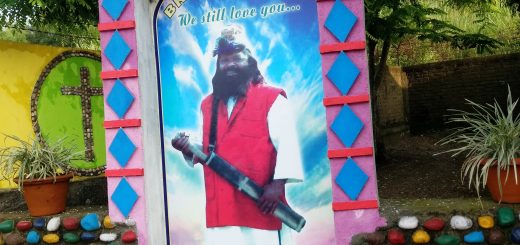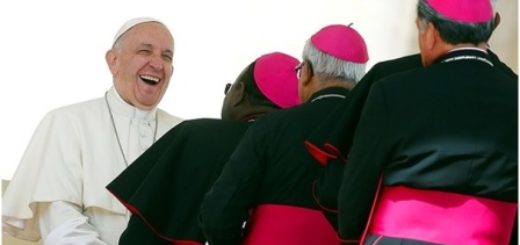CHURCH TURMOILS IN PERSPECTIVE – Rev. Valson Thampu

House divided against itself cannot Stand!
Note: This report is received from Rev. Valsoan Thampu, a well-wisher of the Syromalabar Church and a member of the Church of the Church of South India.
Internal divisions and fighting, between priests, laity and bishops, between the bishops themselves and some 250 priests who don’t want to accept Cardinal Alancherry as their head and he himself is in conflict with his two auxiliaries — the whole Archdiocese of Ernakulam is presenting itself as a corrupt and rotten institution, according to repots.
In his article Valson, gives brotherly advise for unity and cooperation. In a similar vain the Syromalabar missionary group of dicesess in the North headed by Archbishop Thomas Menamparampil also comes to advise them in a Christisan sprit. Do Cardinals and bishops need Christian sermonizing to behave themselves? There is nothing impossible with God, they say! But the bigger question is, if these preachers themselves believe in a God? james kottoor, editor CCV
Please read below Rev. Valson Thmapu’s Article
 Two media headlines on 15 July made significant reading. The first pertained to the struggle of a sizeable segment of the priests and laity of the Ernakulam-Angamaly archdiocese against what they deem to be the dubious and indefensible involvement of archbishop George Alanchery in shady land deals.
Two media headlines on 15 July made significant reading. The first pertained to the struggle of a sizeable segment of the priests and laity of the Ernakulam-Angamaly archdiocese against what they deem to be the dubious and indefensible involvement of archbishop George Alanchery in shady land deals.
The other relates to the ‘resolution’ adopted by the Kerala Region Latin Catholic Council under the leadership of archbishop Soosa Pakiam, affirming the resolve of the Church to ‘protect the Indian Constitution’. The ironic contradiction between the two news items exposes the autotoxicity that is convulsing not just the Catholic Church but all Christian denominations in Kerala.
Those who, in opportune situations, show-case their commitment to the Constitution overlook the fact that the Constitution is a mandate to create a ‘socialist, secular, democratic Republic’. One is left wondering which of these aspects of the Constitution the church wants to protect. The church cannot be ‘socialist’ and also rich at the expense of a largely poor laity. The Syro-Malabar church alone has assets in excess of two lakh crores of rupees. Secularism is, in theory and practice, anathema to the church. As for democracy, the struggle that is currently raging in the Angamaly archdiocese is provoked by the total negation of the basics of democracy in church governance. George Alanchery has taken the condemnable stand that the members of the church have no right vis-à-vis the material assets of the church, including land. That sounds more like dictatorship than like democracy. But even Alanchery is keen to defend the Constitution.
It comes as no surprise that bishops resist the Kerala Christian Church Properties Bill (2019), which is a long over-due measure to introduce the rudiments of democracy into church polity. The bishops’ lobby arm-twists the government against it on the strength of the vote-banks they presumably control. Till date, no bishop or bishops’ council has initiated any consultation with the laity on the provisions of this Bill. Nor has any one of them explained to anyone how this Bill endangers the church. True to tradition, they have arbitrarily come to the conclusion that transparency and accountability in managing church properties and assets will ruin Christianity. At the same time, they also pass resolutions to protect the Indian Constitution!
This glaring hypocrisy will surprise only those who are ignorant of how the priestly class in all religions in all ages and cultures has functioned. In the interest of objectivity, let me cite a distant example from the annals of Egypt. The priests of Osiris made worshippers believe that, after death, their souls would be weighed in the scale against a feather to test their truthfulness. Those whose hearts are found to be heavier than feathers would be condemned to eternal torments in their tombs; hungering and thirsting, and their bodies fed upon by hideous crocodiles. But priests knew a way out of this misery for those who could pay amply for it. They would fill the tomb with talismans pleasing to the gods. The secret of what ‘pleased the gods’ -says Will Durant in The Story of Civilization (vol 1, Our Oriental Heritage) was known only to priests. The consequence was that priests grew immensely rich. In many Eastern cultures, priests became richer than kings. The power of the clergy depended in every religion at all times entirely on the wealth they commanded. God was superfluous to it. The people were indoctrinated to believe that ‘offerings made to the gods’ were out of bounds for them and that it was impious for them to meddle with. The door of accountability remained shut for millennia. It still does.
Readers would readily see that religious establishments, irrespective of their differences in other respects, are identical in wanting to resist transparency and accountability in money matters. Democracy becomes a mockery without it. Since it is money, not God, who keeps the engine of religion going, administrative inscrutability is insisted on as a religious right. This defies the discipline of democracy.
No priest, bishop, archbishop or Pope generates wealth. The wealth of the church, like the wealth of a nation, is generated entirely by ordinary people. The right of the believers has stood reduced to the right to contribute, without the right to know if what they contribute is managed or mismanaged. Archbishop Alanchery should let the people know the parcels of land he personally brought into the church or the wealth he generated out of the sweat of his brow.
In two thousand years, Christians have not cared to understand, or dared to reckon, Christ’s denunciation of the venality and depravity of the priestly class. He condemned them for subverting the religious freedom of the people. He denounced their hypocrisy and immorality. Prostitutes, he said, would enter the Kingdom of God, but not Pharisees; or, by implication, priests or bishops. It is sheer hypocrisy that resolutions are passed to ‘defend’ the Constitution and, at the same time, every attempt to bring basic democratic discipline into the management of church assets is resisted tooth and nail. If Kerala Region Latin Catholic Council or the KCBC or the CBCI, or the leaders of other Christian denominations, have any regard at all for the Constitution, the urgent thing to do is to welcome the Church Property Bill. Church is the body of believers, not a handful of priests and prelates swollen with worldly entitlements in the name of Jesus Christ who did not have a roof over his head. The initiative and commitment shown by the priests and laity of the Angamaly Diocese in resisting the criminalization of the church merits wide support and admiration. They, and not land mafia dons in sheep’s clothing, are the true shepherds of the flock. Their struggle, in its spiritual significance, is comparable to the bid of a few nuns to ensure that an outraged fellow nun, as they believe to be the case, gets justice against the might of the church bolstered by the muscle of the state.

















Catholic Church in Kerala and elsewhere has been focusing more on commercial activities than spiritual. Their educational institutions and hospitals were originally intended to be cost centres serving the people. Not any longer. They are regarded as profit centres and expected to roll in money and more money to the bishops and cardinals. Not even a poor church member eking out a living is spared from fleecing when accessing these services. Meanwhile they continue to fool the believers through their guaranteed-to-reach heaven sacraments. Believers need an awakening like the one that followed French Revolution.